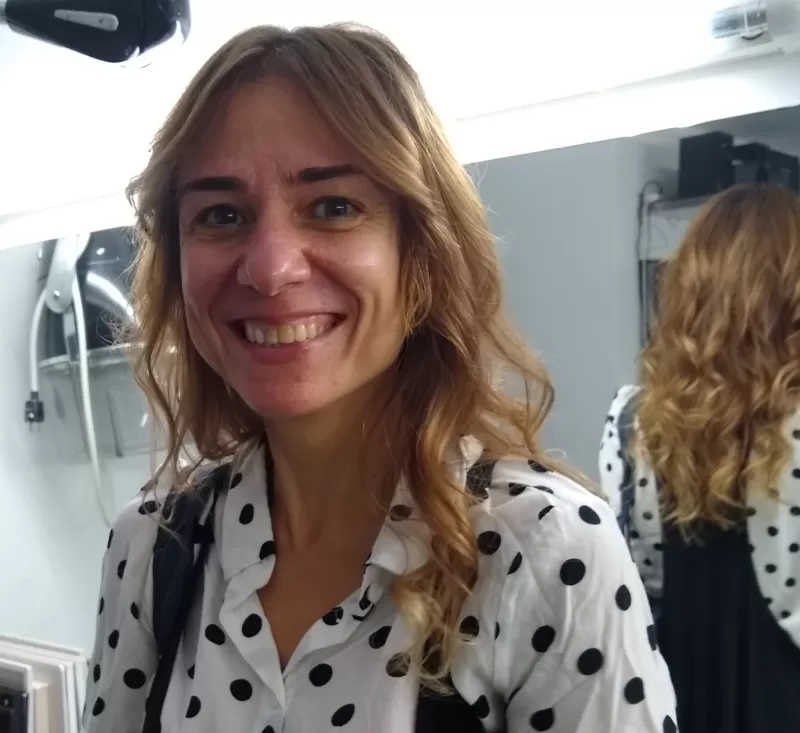Knowledge Graphs and Semantic Computing Speaker Series: Núria Queralt Rosinach

Dr. Núria Queralt Rosinach, a biomedical informatics researcher, will present "Applying FAIR in the LUMC hospital."
Access to previous talks can be found here.
Dr. Núria Queralt Rosinach, born in Reus (Catalonia, Spain), is a biomedical informatics researcher who joined the Biosemantics Group in April 2020. She obtained a MSc in Bioinformatics from Pompeu Fabra University (UB/UPF) in 2008 and a PhD in Computational Chemistry from Rovira i Virgili University (URV) in 2010. In 2012, she started her first postdoc at the IBI Group, GRIB/UPF/IMIM, in the creative and sunny Barcelona (Catalonia, Spain), where she learnt about semantic technologies and Linked Data for genotype-phenotype research, and implemented DisGeNET-RDF. In 2016 she started her second postdoc at the Su Lab, Scripps Research, in the inspiring and surfer San Diego (California, US), where she learnt about Artificial Intelligence (AI) approaches over knowledge graphs for hypothesis generation and drug repositioning on rare genetic diseases, and implemented the NGLY1 Deficiency hypothesis generation and community curation tool. In 2019 she joined the Bio-Ontology Research Group as a visiting researcher in the multi-cultural and exciting KAUST (Thuwal, KSA), where she learnt about logic and interpretable machine learning. She has expertise in Semantic Web technologies, Artificial Intelligence (AI) approaches over knowledge graphs, formal logic and interpretable machine learning for hypothesis generation and drug repurposing. She is currently investigating how to exploit FAIR data for explainable AI and hypothesis generation to improve rare, common and infectious disease discovery, how to integrate FAIR research and patient data for modelling, prediction, rationalization and analysis, and how to make FAIR data clinically actionable for bench to bedside translation.
Abstract:
Timely, reliable and robust data analytics are essential to make precise predictions for effective interventions of both personalized medicine and public health. The importance of efficient use and reuse of biomedical data across institutes and countries has been exemplified by the COVID-19 pandemic. With current technology data should be ready at source for computational multi-source analysis, removing months of effort spent on data preparation for each analysis. The definition of the primary principles that data should be Findable, Accessible, Interoperable, and Reusable for humans and machines (FAIR) now marks a turning point in how we think globally about health-related research data management to make a faster impact to society. The next challenge is implementation, and then reaching a critical mass of FAIR data to fully exploit the benefits. In this talk I will present our recent work on applying the FAIR principles to data in a hospital. I will highlight lessons learned and I would like to raise discussion on the challenges in biomedical big data and health data to be ready for bioinformatic analysis and AI methods as AI becomes an integral part of biomedical research, and how the research landscape will be changed and empowered by FAIR data ecosystems for federated discovery across countries. Fostering digital culture change may be our biggest challenge ahead!
Relevant Publications:
[1] Queralt-Rosinach, N., Kaliyaperumal, R., Bernabé, C.H. et al. Applying the FAIR principles to data in a hospital: challenges and opportunities in a pandemic. J Biomed Semant 13, 12 (2022). https://doi.org/10.1186/s13326-022-00263-7
[2] Queralt-Rosinach N, Stupp GS, Li TS, Mayers M, Hoatlin ME, Might M, Good BM, Su AI. Structured reviews for data and knowledge-driven research. Database (Oxford). 2020 Jan 1;2020:baaa015. doi: 10.1093/database/baaa015.
Fun Fact:
Núria is a ‘converted’. During her Chemistry Bachelor’s days, she discovered that she was so terrible in the wet lab that she decided to go to the dark side: computational chemistry + Linux systems, and afterwards the darkest one: a bioinformatics + fan lover of all related to ‘semantics’. So, now she is saying it loud: I am a proud chemist ‘converted’ to bioinformatics!
We continue the CIRSS speaker series in Fall 2023 with a focus on “Knowledge Graphs and Semantic Computing”. We will meet on Fridays, 9-10am Central Time, on Zoom. To join a session, go to the current week’s session and click the “access” link, which will lead you to a calendar entry. There, click the “PARTICIPATE online” button to join a session. Recordings of past talks can be found next to "access" if available. The event is open to the public, and everyone is welcome to attend! This series is hosted by the Center for Informatics Research in Science and Scholarship (CIRSS). If you have any questions, please contact Jana Diesner and Halil Kilicoglu.
If you are interested in this speaker series, please subscribe to our speaker series calendar: Google Calendar or Outlook Calendar.
This event is sponsored by Center for Informatics Research in Science and Scholarship